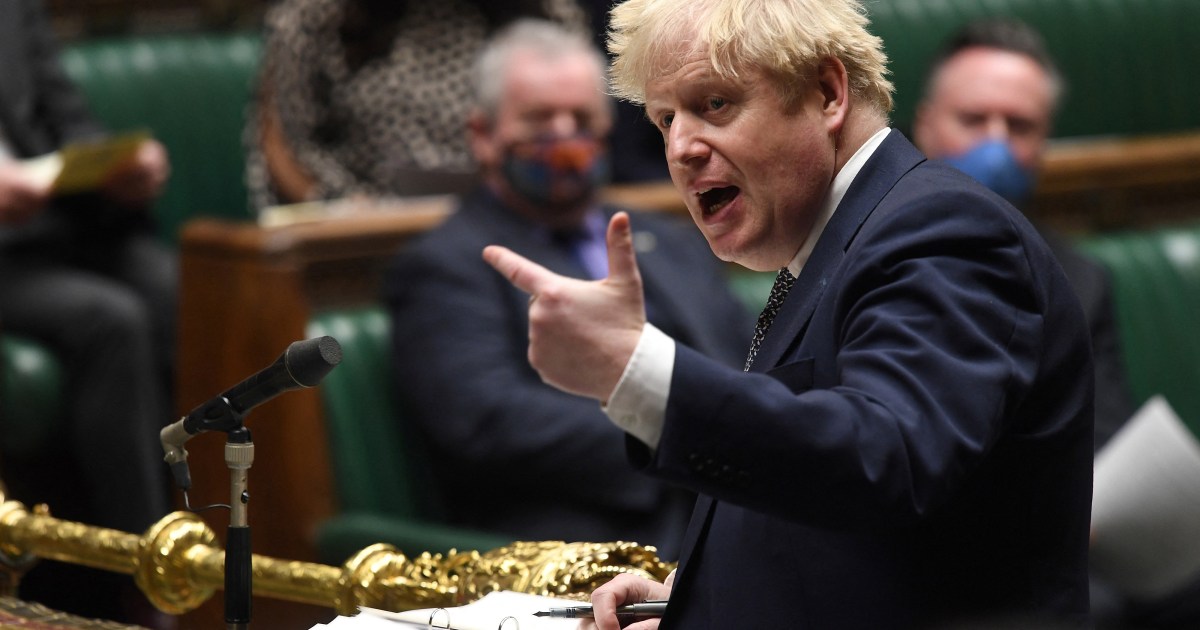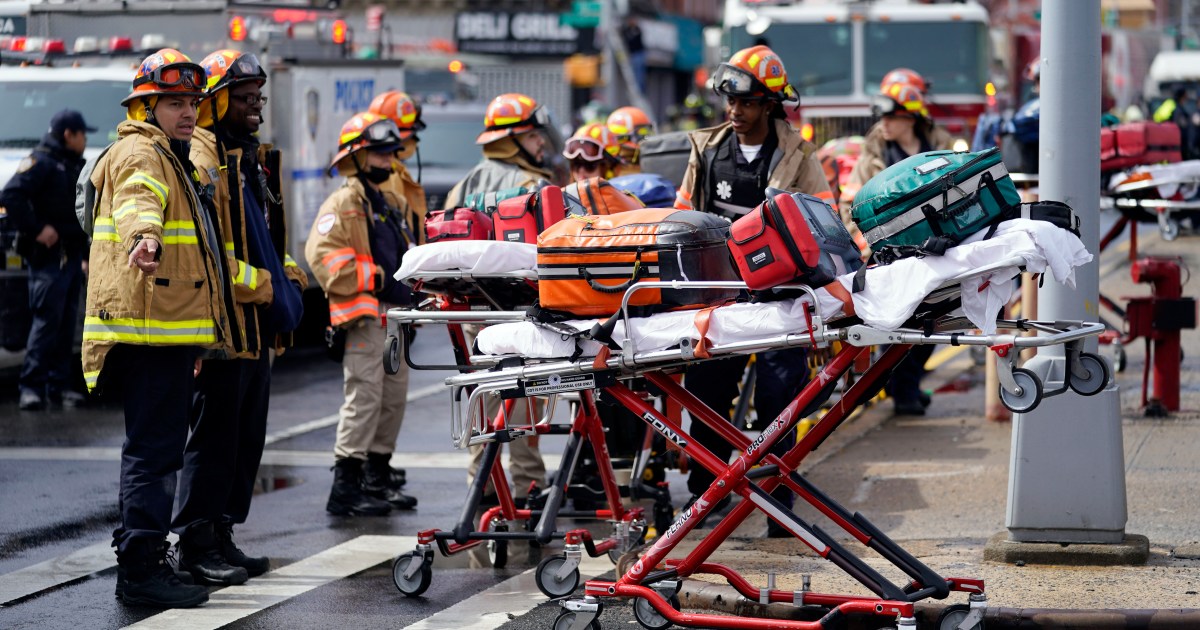UK’s Boris Johnson faces no-confidence vote: All you need to know
British Prime Minister Boris Johnson is facing a no-confidence vote on Monday after a series of scandals, including a damning official report about lockdown-breaking parties at his official residence.
Johnson has promised to fight on but if he loses the vote he will be out of a job and a contest to replace him will begin.
Here is what we know:
How was the vote triggered?
The no-confidence vote was triggered after a growing number of lawmakers in the governing Conservative Party questioned Johnson’s authority following a series of scandals.
Fifteen percent of Conservative members of parliament (MPs) have to write letters demanding a confidence vote to the chairman of the party’s “1922 Committee”, which represents lawmakers who have no government jobs.
The Conservatives have 359 MPs, so 54 would need to write letters in order to call a confidence vote. The letters are confidential, so only 1922 Committee Chairman Graham Brady knows how many were submitted.
On Monday, Brady said: “The threshold of 15 percent of the parliamentary party seeking a vote of confidence in the leader of the Conservative Party has been exceeded”. He added that a vote would be held between 6 and 8pm (17:00-19:00 GMT) on Monday.
How will the vote work?
Johnson would need 180 votes to win. If he gets that many he cannot be challenged for another year.
The 359 Tory legislators can cast secret ballots.
There is little formal indication of the extent of the rebellion against Johnson. Not all those who submitted letters did so publicly, while more than 20 called for him to resign or criticised him without confirming they sent a letter.
Senior members of Johnson’s cabinet have expressed their support for him. The Institute for Government estimates that about 170 lawmakers hold government roles in some capacity, and would usually be expected to resign if they wished to oppose the government on an issue of importance.
What happens if he loses?
Al Jazeera’s Rory Challands, reporting from London, said: “The last time there was a successful vote of no-confidence in a prime minister was in 1979… I think most people are expecting Boris Johnson to survive this one.”
If Johnson loses, he must resign and is barred from standing in the leadership election that will follow to select the new prime minister.
If several candidates come forward, a secret vote is held among Conservative MPs. The candidate with the fewest votes is removed and another ballot is held. The process is repeated until two candidates remain, with votes typically held several days apart, on Tuesdays and Thursdays.
The final two candidates are then put to a postal ballot of the wider Conservative Party membership, the winner becoming the new leader. Voters must have been party members for more than three months.
What happens if he wins?
Although Johnson would theoretically be safe in his job for a year, that rule could be changed.
Asked whether that timeframe could be shortened, Brady said: “Technically, it’s possible for rules to be changed, but the rule at present is that there will be a period of grace.”
Even if Johnson is protected from a new vote of confidence, a significant mutiny could make his leadership untenable.
Johnson’s predecessor Theresa May won a confidence vote in her leadership in December 2018, by 200 votes to 117, but the pressure on her to quit continued after she failed to deliver Britain’s departure from the European Union on time and she announced her resignation less than six months later.
If he loses, who could be his potential replacements?
Any Conservative legislator is eligible to run to replace Johnson as party leader. The two names most often mentioned are Foreign Secretary Liz Truss and Treasury chief Rishi Sunak, both senior ministers with strong followings in the party.
Other possible contenders include Deputy Prime Minister Dominic Raab, who ran against Johnson in the previous election; Cabinet Minister Michael Gove, one of the most powerful members of Johnson’s government; Health Secretary Sajid Javid, who leads the country’s coronavirus response; and Jeremy Hunt, a former health minister who ran against Johnson for the leadership in 2019.
What has Boris Johnson said so far?
According to a BBC report, Johnson sent a letter to his MPs ahead of the vote, saying the motion is an opportunity to “draw a line under the issues our opponents want us to talk about” and focus on “what really matters” to voters.
He adds that with the MPs’ support, “we can put an end to the media’s favourite obsession. We can get on with the job without the noises off”.
The Prime Minister has written to Conservative MPs… pic.twitter.com/GmbuXqSmuf
— Chris Mason (@ChrisMasonBBC) June 6, 2022




